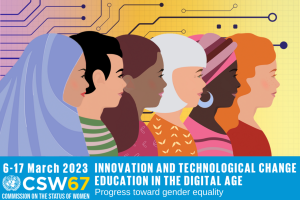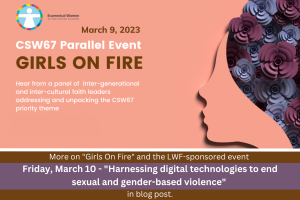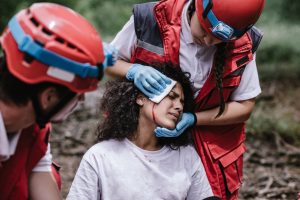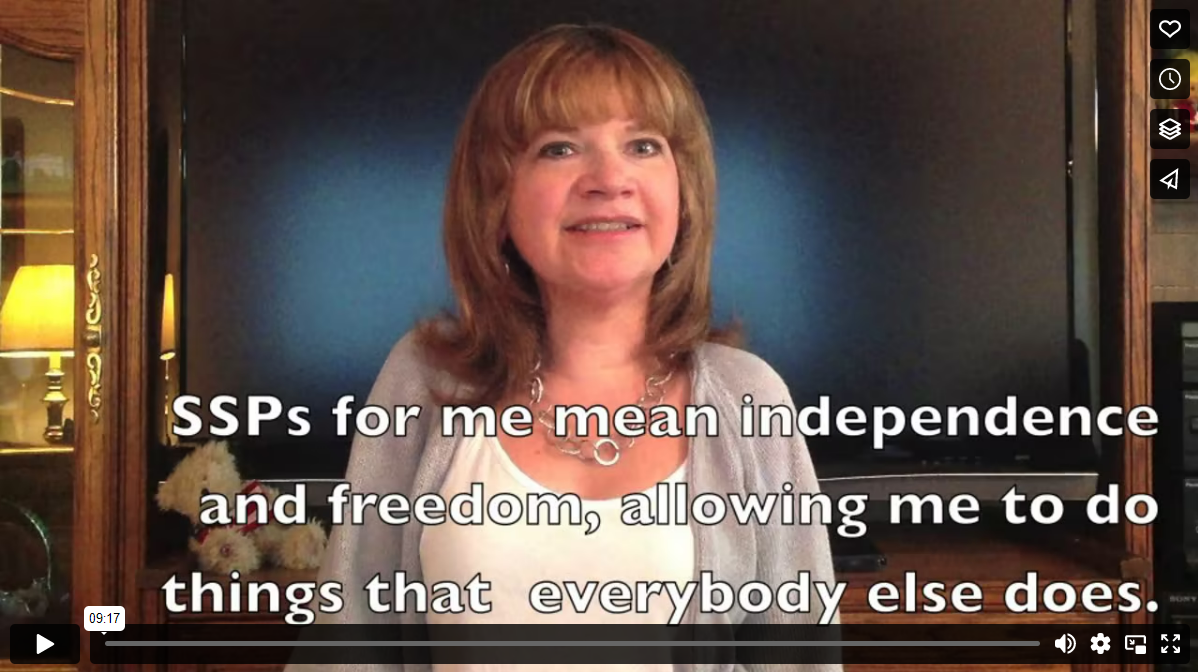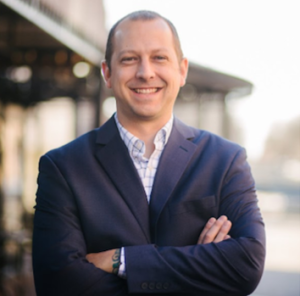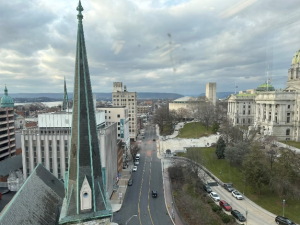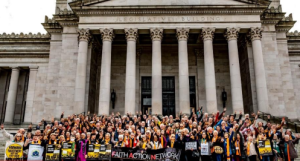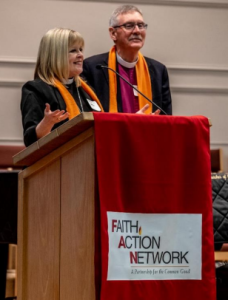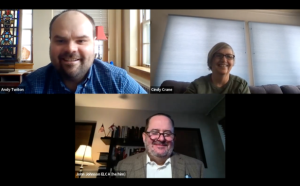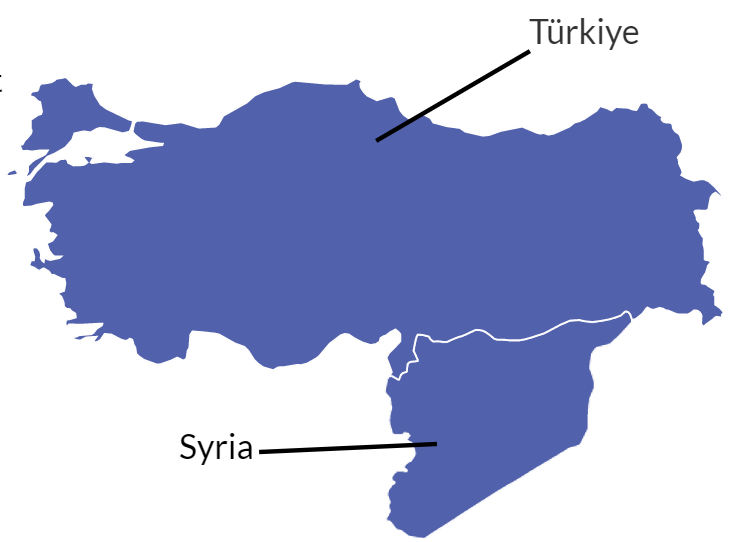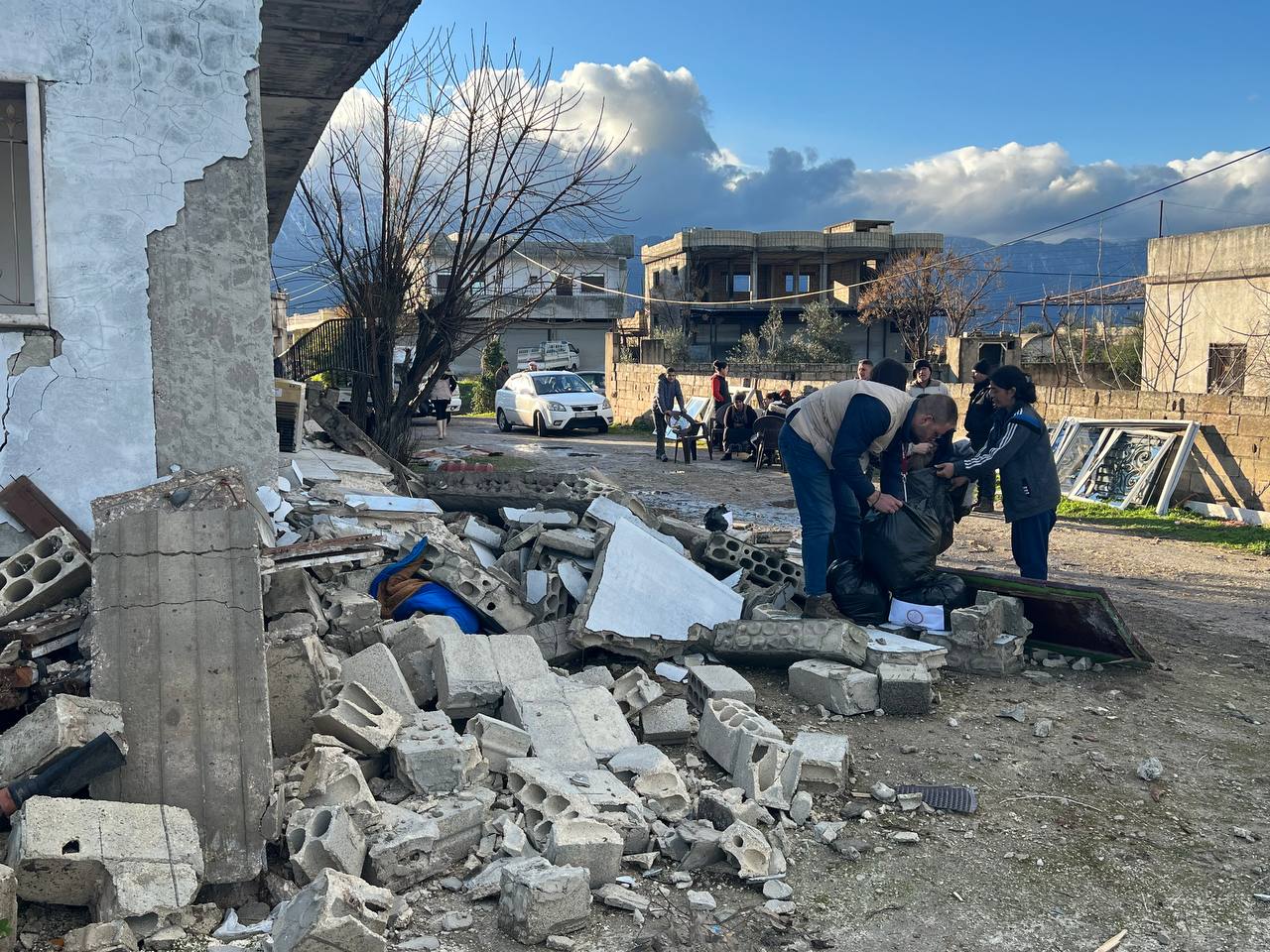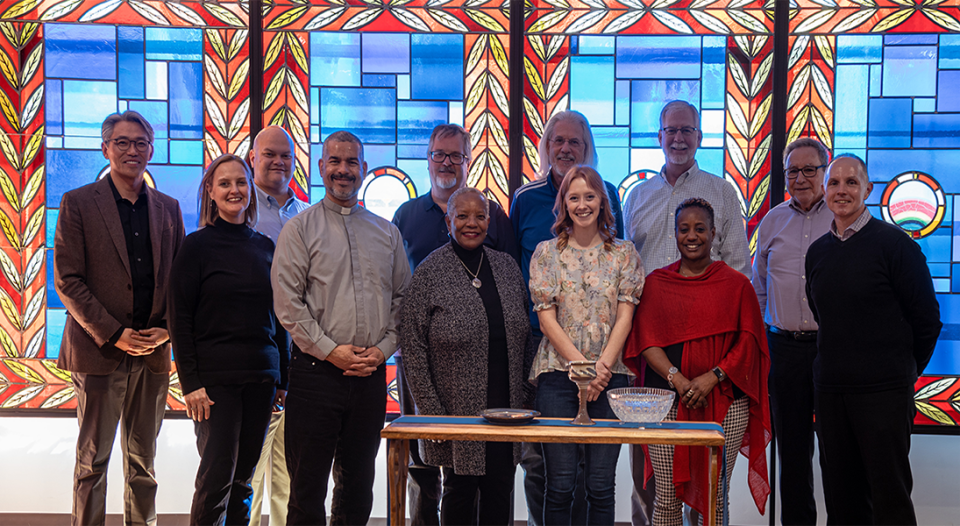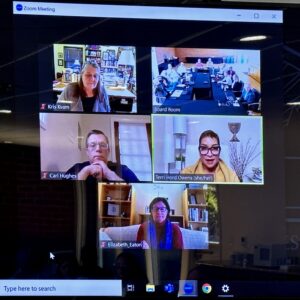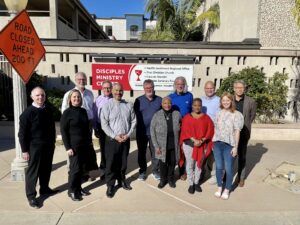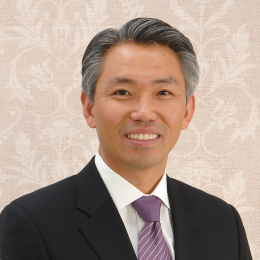
Session 2 — Psalm 121
“My help comes from the Lord.” —Psalm 121:2
Just over two years ago, after decades of working, Susan became disabled. “I was newly poor and relatively terrified,” she wrote. “With literally everything stripped from the budget except a roof over our heads and very modest transportation, the monthly budget showed a balance of negative $5. The meaning of food insecurity became abundantly clear.”
Late in life, Susan had adopted three boys. Her circumstances made her worry nonstop about their futures and how she would keep the promises she had made to them.
The psalm for this week in Lent opens with a similar worry and prayer. “I lift up my eyes to the hills,” writes the psalmist. “From where will my help come?” (verse 1).
One of the more frustrating responses people offer to stories of food insecurity in the United States is that one can easily figure out where to go during hard times. No matter how often the stories are shared, no matter how persistent rates of food insecurity are, one still hears:
“Can’t you just get welfare?” (No — it doesn’t exist in the ways you think it does and hasn’t since the mid-1990s.)
“You can get food stamps, can’t you?” (Sure, but these average only $175 a month and for certain age groups are available for only three months.)
Unfortunately, the reality for many food-insecure families and individuals in the U.S. is that public programs are often difficult to access, and many people lack social support systems that can help them when something goes wrong. Even if programs and support systems are available and accessible, being food insecure or living in poverty carry stigmas, much like the ones we discussed in the last session of this study. This can make it hard to know where to turn and to find the confidence necessary to make that turn once we arrive at it.
For Susan, coming from a middle-class background meant having to face the stigma of food insecurity head-on. She remembers watching a food distribution at the West View Hub (“the Hub”), a community center serving neighbors in Pittsburgh. “I still had the haughty air of someone who recently belonged to the middle class, so rather than inquire, I watched.” After some time, a person from the Hub started to talk with her. The Hub was distributing milk and eggs, and there was a long line of clients. Susan had planned to observe only, but a volunteer invited her to find a place in the line, and she went home with food and money to spare for the week. For her, the change was immediate. “All of a sudden I went from negative $5 to plus $45 for the month,” she wrote. “I could breathe.”
The food pantry is just one part of the Hub, which is supported by an ELCA World Hunger grant through Berkeley Hills Lutheran Church, an early partner in the work. In addition to food, the Hub provides a local library, internet access and other support the community needs. More importantly, the Hub fosters new relationships among neighbors. “The food pantry [was] just the beginning,” explained Susan. “We found a home there. We found family there.”
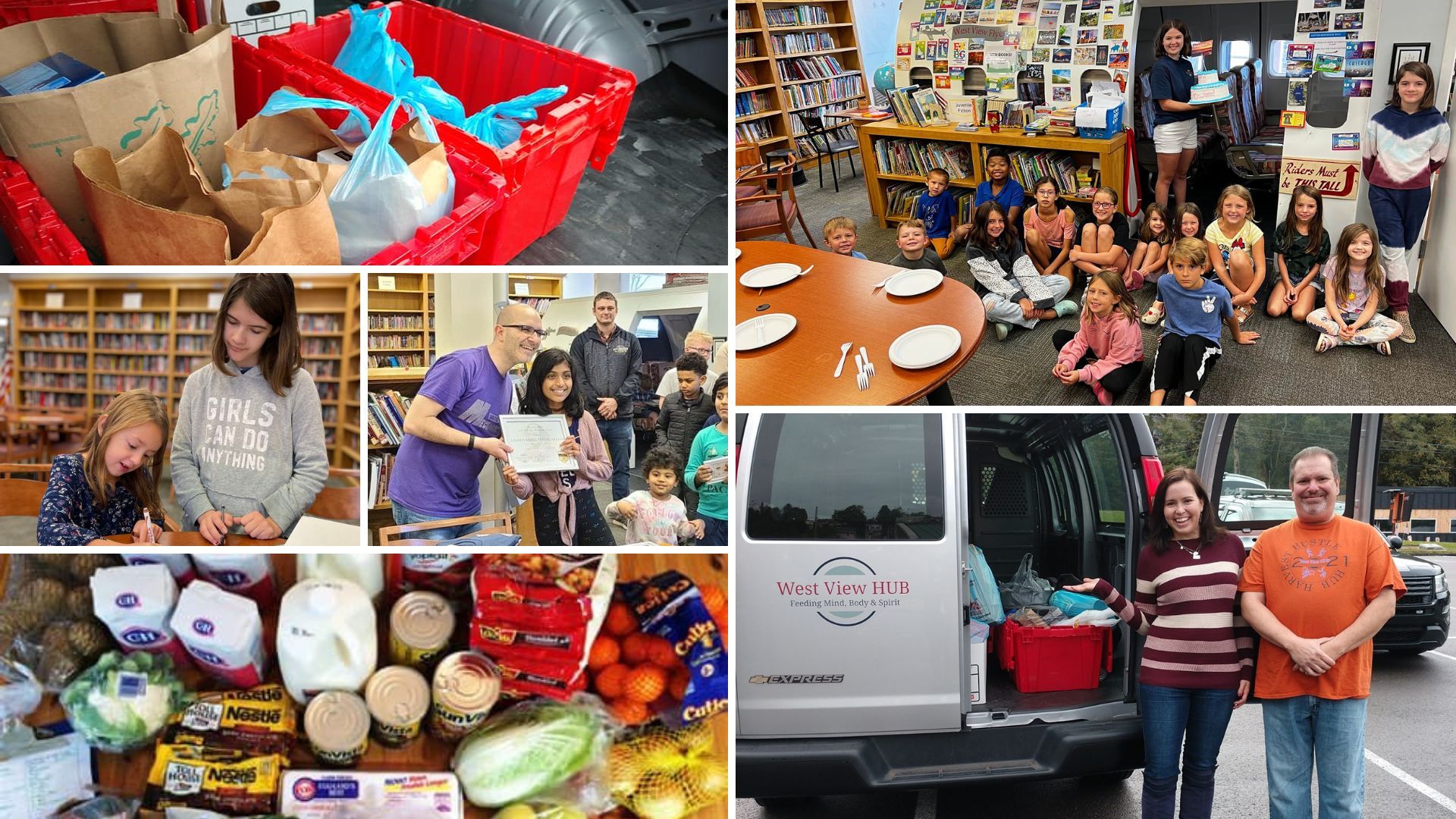
Through ELCA World Hunger, our church is committed to supporting transformative, integrated and holistic ministries that address 10 the root causes of hunger. To put it more simply, these ministries break down barriers within communities and work with other partners to address the multiple needs people face. If we are serious about our church ending hunger, each of these steps will be important, yet we also need to remember that the most important ministry is being present.
God’s invitation for us to build a just world where all are fed comes out of our own experience as people saved by grace. As told in Holy Scripture, the entire history of the people of God is the story of God being present with the people, especially when they felt alone. Look at Psalm 121:1-4:
I lift up my eyes to the hills — from where will my help come?
My help comes from [you,] Lord, who made heaven and earth.
[You] will not let your foot be moved; [those] who keep you will not slumber.
[They] who keep Israel will neither slumber nor sleep. (vs. 1-4).
Reading this psalm, indeed reading all the Bible, we might sum up the character of God in a single phrase: relentless presence. God is relentlessly present with the people. From the Garden of Eden to Egypt to the wilderness, God is present.
From Israel to Judah to exile to return, God is present. The spirituality of the Lenten season — indeed, a key purpose of Lenten fasting — is to remind us of our dependence on God. We remember in these 40 days our need for God’s grace, God’s provision and God’s help in the moments when we can’t help ourselves. Yet we also remember that the good news of grace is the good news that God will be relentlessly present with us “always, to the end of the age” (Matthew 28:20).
That is part of what makes the work of the West View Hub so important and so transformative for neighbors such as Susan. Being present, listening to our neighbors’ needs and offering words of welcome and hope are what it means to be saved by a relentlessly present God.
This season, we are called to remember our times of need when God showed up and to remember our calling to do the same. As church, we respond to hunger for many reasons. Sometimes our compassion pulls us to meet the needs of our neighbors. Other times we may feel a sense of responsibility to care for the people God places in our midst. At all times, though, we do this work because we are set free by grace to be relentlessly present in our own communities, so that every time a neighbor, friend or stranger wonders, “From where will my help come?” the people of God will reply, “Here.”
Here — you are welcome.
Here — you will be fed.
Here — we will meet our needs together.
REFLECTION QUESTIONS
How has the church been present for you in times of distress?
How might your personal ministry or the ministry of your congregation change if you focused on being relentlessly present with and among your neighbors?
Where is God calling you to be relentlessly present this season?
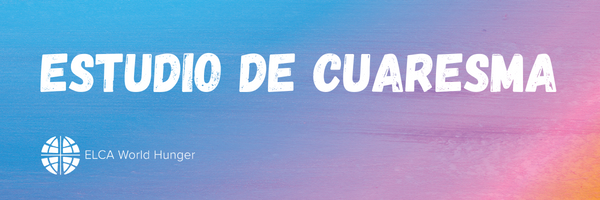
Sesión 2 — Salmo 121
“Mi ayuda proviene del Señor”. —Salmo 121:2
Hace poco más de dos años, después de décadas de haber estado trabajando, Susan quedó discapacitada. Ella escribió: “Acababa de convertirme en una persona pobre, y estaba relativamente aterrorizada”. Después de que literalmente todo fue extraído del presupuesto, excepto un techo sobre nuestras cabezas y un transporte muy modesto, el presupuesto mensual mostró un saldo negativo de $ 5. El significado de la inseguridad alimentaria se volvió muy claro”.
Algo tarde en su vida, Susan había adoptado tres niños. Sus circunstancias la hacían preocuparse incesantemente por el futuro de ellos y de cómo iba a cumplir las promesas que les había hecho.
El salmo de esta semana de Cuaresma comienza con una preocupación y una oración similares. “A las montañas levanto mis ojos”; escribe el salmista. “¿De dónde ha de venir mi ayuda?” (versículo 1).
Una de las respuestas más frustrantes que la gente ofrece a las historias de inseguridad alimentaria en los Estados Unidos es que uno puede averiguar fácilmente a dónde ir en tiempos difíciles. No importa cuán a menudo se compartan las historias, no importa cuán persistentes sean los índices de inseguridad alimentaria, uno todavía oye:
“¿No puedes simplemente recibir asistencia social?” (No —no existe en la forma en que crees que existe y no ha existido desde mediados de la década de 1990).
“Puedes obtener cupones de alimentos, ¿no?” (Claro, pero el promedio de estos es solamente $ 175 al mes, y para ciertos grupos de edad solo están disponibles por tres meses).
Desafortunadamente, la realidad para muchas familias e individuos que sufren de inseguridad alimentaria en los Estados Unidos es que a menudo es difícil tener acceso a los programas públicos, y muchas personas carecen de sistemas de apoyo social que puedan ayudarlas cuando algo sale mal. Incluso cuando hay programas y sistemas de apoyo disponibles y accesibles, el tener inseguridad alimentaria o vivir en la pobreza lleva consigo estigmas, muy parecidos a los que discutimos en la sesión anterior de este estudio. Esto crea la posibilidad de que sea difícil saber a dónde acudir y encontrar la confianza necesaria para hacer ese giro una vez que lleguemos a este.
Susan venía de un ambiente de clase media, y esto significaba que tenía que encarar de frente el estigma de la inseguridad alimentaria. Ella recuerda que vio una distribución de alimentos en el West View Hub (“el Hub”), un centro comunitario que sirve a los vecinos en Pittsburgh. “Todavía tenía el aire altivo de alguien que hace poco había pertenecido a la clase media, así que, en lugar de preguntar, observé”. Después de un tiempo, una persona del Hub comenzó a hablar con ella. El Hub estaba distribuyendo leche y huevos, y había una larga fila de clientes. Susan había planeado observar solamente, pero un voluntario la invitó a ponerse en la fila, y se fue a casa con comida y dinero de sobra para la semana. Para ella, el cambio fue inmediato. “De repente pasé de menos $ 5 a más de $ 45 para el mes”, escribió ella. “Podía respirar”.
La despensa de alimentos es solo una parte del Hub, el cual cuenta con el apoyo de una beca de ELCA World Hunger a través de la Iglesia Luterana Berkeley Hills, una de las primeras socias en la obra. Además de alimentos, el Hub ofrece una biblioteca local, acceso a Internet y otro tipo de apoyo que la comunidad necesita. Más importante aún, el Hub fomenta nuevas relaciones entre los vecinos. “La despensa de alimentos [fue] solo el comienzo”, explicó Susan. “Allí encontramos un hogar. Allí encontramos familia”.
A través de ELCA World Hunger, nuestra iglesia se compromete a apoyar ministerios transformadores, integrados y holísticos que abordan 10 causas fundamentales del hambre. Para decirlo de manera más simple, estos ministerios rompen las barreras dentro de las comunidades y trabajan con otros socios para abordar las múltiples necesidades que enfrentan las personas. Si tomamos en serio el que nuestra iglesia acabe con el hambre, cada uno de estos pasos será importante, pero también debemos recordar que el ministerio más importante es estar presente.
La invitación que Dios nos hace a construir un mundo justo en el que todos sean alimentados proviene de nuestra propia experiencia como personas salvadas por gracia. Como se narra en las Sagradas Escrituras, toda la historia del pueblo de Dios es la historia de Dios que estaba presente con el pueblo, especialmente cuando se sentían solos. Mire el Salmo 121:1-4:
A las montañas levanto mis ojos; ¿de dónde ha de venir mi ayuda?
Mi ayuda proviene del Señor, creador del cielo y de la tierra.
No permitirá que tu pie resbale; jamás duerme el que te cuida.
Jamás duerme ni se adormece el que cuida de Israel (versículos 1-4).
Leyendo este salmo —de hecho, leyendo toda la Biblia —podríamos resumir el carácter de Dios en una sola frase: presencia continua. Dios está continuamente presente con la gente. Desde el Jardín del Edén hasta Egipto y el desierto, Dios está presente.
Desde Israel hasta Judá, desde el exilio hasta el retorno, Dios está presente. La espiritualidad de la temporada de Cuaresma —de hecho, un propósito clave del ayuno cuaresmal —es recordarnos nuestra dependencia de Dios. En estos 40 días recordamos nuestra necesidad de la gracia de Dios, la provisión de Dios y la ayuda de Dios en los momentos en que no podemos ayudarnos a nosotros mismos. Sin embargo, también recordamos que las buenas nuevas de la gracia son las buenas nuevas de que Dios estará continuamente presente con nosotros “siempre, hasta el fin del mundo” (Mateo 28:20).
Eso es parte de lo que hace que el trabajo del West View Hub sea tan importante y transformador para vecinos como Susan. Estar presentes, escuchar las necesidades de nuestro prójimo y ofrecer palabras de bienvenida y esperanza es lo que significa ser salvado por un Dios continuamente presente.
Esta temporada somos llamados a recordar nuestros momentos de necesidad en los que Dios apareció y a recordar nuestro llamado a hacer lo mismo. Como iglesia respondemos al hambre por muchas razones. A veces nuestra compasión nos impulsa a satisfacer las necesidades de nuestros vecinos. Otras veces podemos tener un sentido de responsabilidad de cuidar a las personas que Dios pone en medio de nosotros. Sin embargo, en todo momento hacemos este trabajo porque somos liberados por gracia para estar continuamente presentes en nuestras propias comunidades, de modo que cada vez que un vecino, amigo o desconocido se pregunte: “¿de dónde vendrá mi ayuda?”, el pueblo de Dios responderá: “de aquí”.
Aquí — usted es bienvenido.
Aquí — usted será alimentado.
Aquí — satisfaremos nuestras necesidades juntos.
PREGUNTAS DE REFLEXIÓN
¿Cómo ha estado presente la iglesia para usted en tiempos de angustia?
¿Cómo podría cambiar su ministerio personal o el ministerio de su congregación si se concentrara en estar continuamente presente con sus vecinos y entre ellos?
¿Dónde lo(a) está llamando Dios a estar continuamente presente esta temporada?



